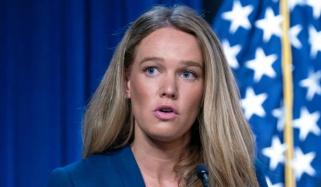Rishi Sunak announced his resignation as Prime Minister and leader of the Conservative Party after a significant loss to Keir Starmer's Labour Party on Friday, July 5.
Sunak's defeat marks the end of 14 years of Conservative rule, characterized by division, instability, and recent economic struggles.
He passes control of the UK, the world's sixth-largest economy, to Labour's Keir Starmer.
Sunak said in a speech outside Downing Street, "I have heard your anger, your disappointment, and I take responsibility for this loss."
He added, "I have given this job my all, but you have sent a clear signal that the government of the United Kingdom must change, and yours is the only judgment that matters."
Despite their differences, Sunak called Starmer a "decent public-spirited man" and wished him and his family the best as they transition to their new roles.
Sunak's resignation follows a turbulent 20-month leadership period.
He inherited an economy with soaring inflation and a damaged Conservative reputation after the chaotic tenures of Boris Johnson and Liz Truss.
Sunak called the election earlier than expected, hoping for improved economic data to close the gap with Labour.
However, his campaign was plagued by missteps, leading to the worst result in Conservative Party history.
"I will step down as party leader, not immediately but once the formal arrangements for selecting my successor are in place," Sunak stated.
He further added, "It is important that after 14 years in government, the Conservative Party rebuilds and takes up its crucial role in opposition professionally and effectively."















